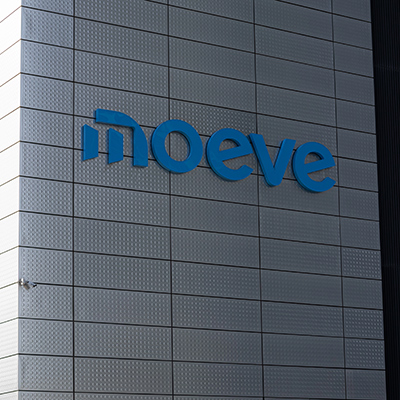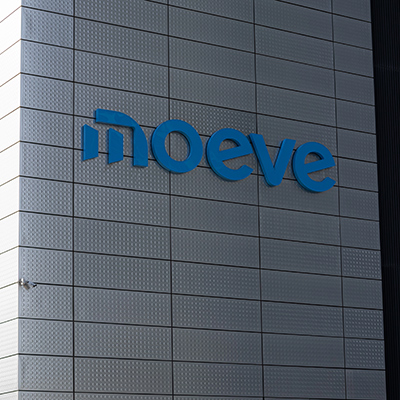- The initiative, promoted by the Cepsa-Santa Cruz Liaison Committee, was created as a forum for debate with social, economic, and academic actors and society in general.
- Emotions during the pandemic on the part of the company is the focus of the first of the meetings.
This project was conceived and promoted by the Cepsa-Santa Cruz Liaison Committee, a continuously meeting forum of the company with various social, economic, professional, and associative sectors in the capital of Tenerife. Throughout the year, professional experts from Cepsa will share their experience and knowledge on different topics of interest to society to generate dialogue with actors from the various sectors and areas invited to each roundtable discussion, in addition to participation by any interested person attending the meeting remotely.
In this regard, the first session, which was chaired by the director of Cepsa in the Canary Islands, José Manuel Fernández-Sabugo, and coordinated by the head of Communication in the Islands, Belén Machado, was attended by the representative of the Governing Board of the Official College of Psychology of Santa Cruz de Tenerife, Tamara Cabrera; the director of the Asociación Factoría Social, Begoña de León; the secretary of the Federation Platform of Volunteer Entities of the Canary Islands, Carlos Campiña; the coordinator of Innovation-New Technologies of the Official School of Languages of La Laguna, Sonsoles de Haro; and the moderator Andrés Brito, a coach from the International Coach Federation.
The opening speech, entitled "Emotional management in the times of COVID-19," was given by the head of Human Resources of Cepsa in the Canary Islands, Juan Carlos Díez, who presented the specific action plan implemented by the company since the beginning of the pandemic to ensure the safety and health conditions of its professionals, taking into account that Cepsa maintained its activity as an essential strategic sector to guarantee the energy supply for the Islands. "Reducing the risk of infection and transmission of the disease, supporting professionals and their families, and reducing the stress caused by the current situation were the plan's main lines of action," he stated.
Ongoing information and advice
Juan Carlos Díez emphasized that, "given the lack of prior knowledge of the pandemic and the peculiarities of Cepsa's activity, from the very beginning we adopted a contingency plan with numerous preventive, technical, and organizational actions to minimize the risk of infection at our work centers and protect our workers."
He specified that "the continuous advice and support for our medical services, promotion of teleworking, the specific COVID risk assessment of more than 150 workstations, and the technical preventive improvements taken all contributed to mitigating the effects of the pandemic. All of this had a direct impact on the professionals' emotional state."
He also emphasized the importance of participation and dialogue with workers' representatives to implemented agreed organizational measures. To this was added the creation of a daily committee to monitor the pandemic in the Islands to coordinate actions in a constantly changing situation and guarantee a clear, standardized protocol of action.
The head of Human Resources at Cepsa in the Canary Islands also stressed that "a vital aspect at this stage was the special dedication to inform all our professionals as rigorously and exhaustively as possible about COVID itself, and thereby reduce uncertainty." To this, he added, organizational flexibility was also a factor, thanks to the regulations on teleworking and flexible working hours included in the collective bargaining agreement itself, which made it possible to offer this modality to the maximum number of workers.
Juan Carlos Díez insisted on Cepsa's role in bringing peace of mind to its teams, protecting their safety and health during the health crisis, and maintaining employment. He also highlighted the maturity and professionalism shown by the workforce.
Additionally, he stressed the positive effect of the Tu salud nos mueve program, a Cepsa initiative focused on health promotion and prevention to ensure workers' well-being, which in this period has emphasized key aspects such as managing emotions, healthy eating, and physical exercise.
Díez emphasized that the pandemic brought out the best values, workers' empathy and solidarity, as evidenced by the donation of nearly 80,000 euros from a social fund that was planned to be sent to 30 non-profit organizations working in assisting the most vulnerable groups.
For his part, José Manuel Fernández-Sabugo was also proud of the performance of the Cepsa team throughout the pandemic and insisted that, during this time, the company has prioritized protecting its employees, through the measures adopted, as well as guaranteeing the essential service it performs as the main energy supplier of the Canary Islands.
The director of Cepsa in the Canary Islands took the opportunity to thank Beatriz Sicilia, head of the Tenerife Isla Solidaria Program, and Enrique Plasencia, representative of the Asociaciones Vecinales de Canarias network, both members of the Cepsa-Cruz Liaison Committee, for their great involvement in the creation of this cycle of round tables and, in particular, in the inaugural session.
In closing the event, he emphasized that "at Cepsa we not only provide energy as such, but also other types of energy that society needs, such as with this type of enriching dialogue meetings and the Liaison Committee itself."
Support, learning, and adaptation
During the open dialogue following the opening presentation, the participants at the roundtable emphasized that the pandemic has brought to the forefront fundamental aspects of support, learning, and adaptation that are essential to continue moving forward at this time.
The guests noted that the first meeting served to create synergies between different groups, while highlighting the importance of recognizing and accepting emotions, resilience, communication, and maintaining social relationships in situations such as now. Emphasis was also placed on the key role played by new technologies as a vehicle for communication.
Another aspect highlighted in the debate was the need to move forward and take steps despite the difficulties, committing to peoples' emotional management with information, solidarity, and empathy. At the same time, they stressed the need for a critical and neutral analysis of each situation.
Finally, the participants in this first session expressed their satisfaction with the Dialogues in Action initiative, which, they explained, will contribute to sharing knowledge and pooling different points of view to generate synergies that will enable progress to be made on the different issues addressed.
Those interested in accessing the recording of the session can do so on Cepsa's Youtube channel or at the following link: https://www.youtube.com/watch?v=5sZx3MZGJ9I&feature=youtu.be



